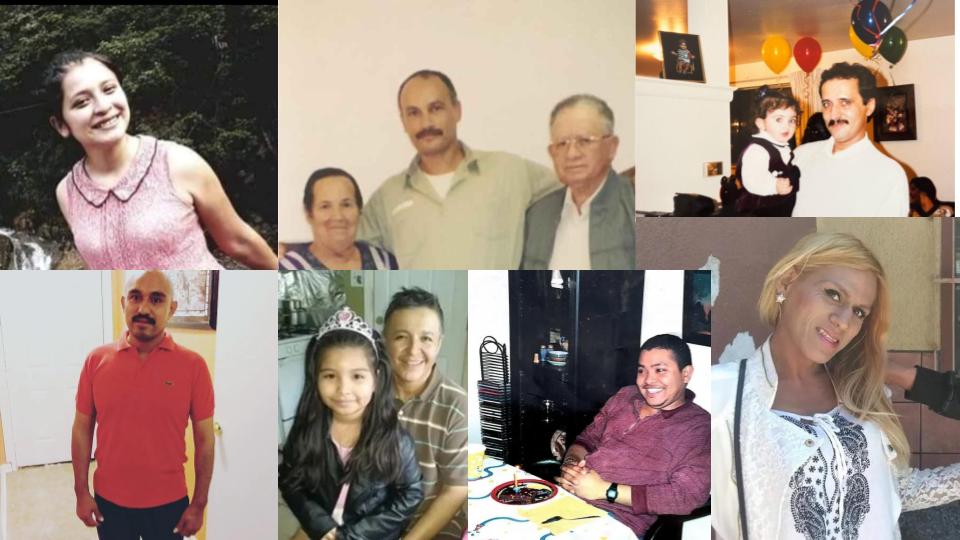U.S forces are officially scheduled to leave Afghanistan by the end of 2014, but Afghan nationals who work or worked for Americans, often at great risk, will be left behind and in fear of being targeted by the Taliban.
“We were not thinking that the situation would get worse and worse,” said Mohammad who is one of tens of thousands of Afghans employed by the U.S. military, government and private contractors during the last 12 years. Today like many Afghans, Mohammad, 38, who did not want to give his full name for fear of retribution, is uncertain about his future and worried about his family’s safety. His job with a U.S government agency is expected to end next year.
“I am worried because I don’t know what is going to happen,” he said. “I can be kidnapped or killed.”
Mohammad started to work for the U.S government in January 2007 and worked six days a week for more than seven years in Kabul.
According to U.S. authorities, 651 SIV visas were issued to individual Afghan applicants who work for or on behalf of the U.S government from October 1, 2012 through September 30, 2013. It is less than half of the 1,500 visas allowed by the U.S for the same period.
Ronald Payne, Director of Allied Freedom Projects, a nonprofit organization established in 2007 to assist Afghan and Iraqi SIV applicants, said that about 75% of all the interpreters have had serious difficulties in obtaining these visas.
“It would be nearly impossible to successfully complete any mission without them [local interpreters],” said Payne.
He said that the personnel involved in processing and adjudicating the SIV Visas do not understand the nuances of the culture, leading to serious errors such as name discrepancy.
“Considering that the Chief of Mission and the Consular Officers decisions are ‘discretionary’ and beyond any real form of transparent administrative or judicial review, one must suspect that in many cases an adverse decision was really an erroneous decision and that no process is in place to correct a manifest error or injustice,” said Payne.
Mohammad has waited for his visa for over three years. He applied in December 2011 for a Special Immigration Visa (SIV), created by the U.S Congress, which allows Iraqi or Afghan allies to immigrate to the U.S.
There are a lot of forms to fill out, recommendation letters to be secured and it is a costly process, he said, which deters applicants. But many of those who completed the process are rejected. The reason given in his first rejection letter is that Mohammad’s employment was either funded by a grant or cooperative agreement or he was not actually employed by or in behalf of the U.S. government.
“The reason they are giving to reject my application is not a proper reason,” said Mohammad, “My recommendation letter said that I am paid by the U.S. government and I am working for them. They [U.S authorities] are sending rejection letters by email and then they are not giving us a chance to meet in order to explain the process.”
In May 2012, he applied again for a visa. This time, his U.S supervisor wrote a new recommendation lauding his skills.
“In my years of supervising Mr. Mohammad, I have always found him to be a loyal, dedicated, highly motivated, competent, and outstanding individual,” said the U.S. supervisor, “Our organization considers his efforts on our behalf as exemplary.”
Despite months of support from American colleagues, his application was denied a second time in August 2012. The third application is still waiting for approval.
“Even if I leave the U.S organization, I suspect that I will still be registered with the Taliban as a U.S employee and I will face the same problems and threats,” said Mohammad, “The job market is very low in Afghanistan and I am afraid that if I lose my job, I will not be able to support my family, send my kids to school or provide decent facilities for us.”
The State Department declined to answer questions about the bureaucratic delay of SIV visas.
“I personally know some SIV applicants who have been waiting for over six years and have been continuously employed by the U.S. Government for the past 10 to 11 years,” said Payne, “Something is wrong here if you can’t figure out if somebody is a good or bad guy in ten years, then tell me how long it will take to figure that out.”

